Dan Kwartler: What causes insomnia?
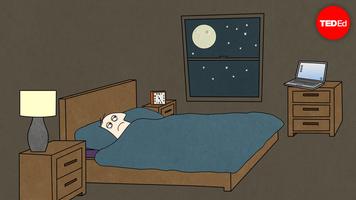
What keeps you up at night? Pondering deep questions? Excitement about a big trip? Stress about unfinished work? What if the very thing keeping you awake was stress about losing sleep? This seemingly unsolvable loop is at the heart of insomnia, the world's most common sleep disorder. So what is insomnia? And is there any way to break the cycle? ...
Dan Kwartler: Why should you read "Dune" by Frank Herbert?

A mother and son trek across an endless desert. Wearing special suits to dissipate heat and recycle moisture, the travelers aren't worried about dying of thirst. Their fears are much greater. Soon, the sound of the desert is drowned out by a hissing: a mound of sand 400 meters long bursts from the desert floor and races towards them. This is the...
Dan Kwartler: What causes headaches?
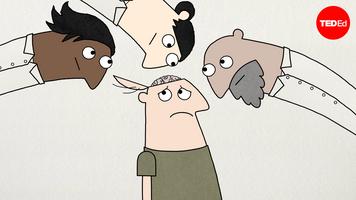
In ancient Greece, the best-known remedy for a long-standing headache was to drill a small hole in the skull to drain supposedly infected blood. Fortunately, doctors today don't resort to power tools to cure headaches, but we still have a lot to learn about this ancient ailment. Dan Kwartler shares what we know (and don't know) about headaches. ...
Dan Kwartler: One of the world’s oldest condiments
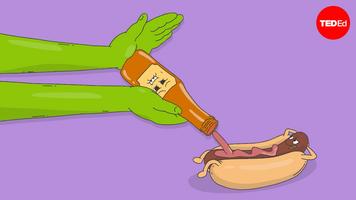
In the mid-18th century, England was crazy for ketchup. The sauce was a staple, but this ketchup wasn’t the ubiquitous red goop you’re familiar with today. In fact, it was a sweet and savory brown sauce that didn’t even have tomatoes in it. So where did this early ketchup come from, and how did it become the dip we know and love? Dan Kwartler tr...
Dan Kwartler: How fast can a vaccine be made?

When a new pathogen emerges, our bodies and healthcare systems are left vulnerable. And when this pathogen causes the outbreak of a pandemic, there's an urgent need for a vaccine to create widespread immunity with minimal loss of life. So how quickly can we develop vaccines when we need them most? Dan Kwartler describes the three phases of vacci...
Dan Kwartler: Why don't we cover the desert with solar panels?
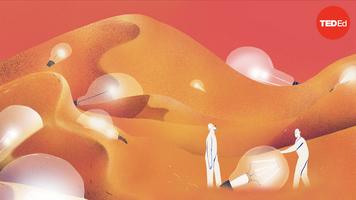
Stretching over roughly nine million square kilometers and with sands reaching temperatures of up to 80° Celsius, the Sahara Desert receives about 22 million terawatt hours of energy from the Sun every year. That's well over 100 times more energy than humanity consumes annually. So, could covering the desert with solar panels solve our energy pr...
Dan Kwartler: The diseases that changed humanity forever
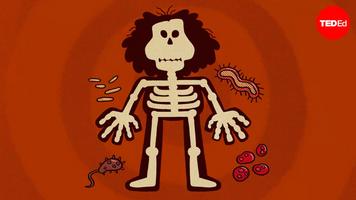
Since humanity’s earliest days, we’ve been plagued by countless disease-causing pathogens. Invisible and persistent, these microorganisms and the illnesses they incur have killed more humans than anything else in history. But which disease has been the deadliest? Dan Kwartler digs into how human progress and innovation throughout history exposed...
Dan Kwartler: Would you eat a ghost pepper for a prize?

Welcome to Risky Business, the game where we find out how far people will go to win a prize! Today’s contestants are a 21 year-old, a 16 year-old, and a 12 year-old. They'll compete in a series of three challenges: eating ghost pepper cookies, swimming in honey, and crossing a balance beam over poison ivy. Who will win? Dan Kwartler takes a look...
Dan Kwartler: What would happen if every human suddenly disappeared?
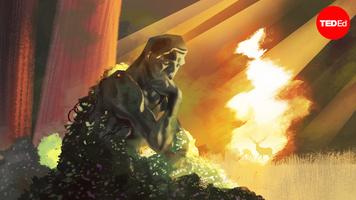
Human beings are everywhere. With settlements on every continent, we can be found in the most isolated corners of Earth's jungles, oceans and tundras. Our impact is so profound, most scientists believe humanity has left a permanent mark on Earth's geological record. So what would happen if suddenly, every human on Earth disappeared? Dan Kwartler...
Dan Kwartler: The myth of Gawain and the Green Knight
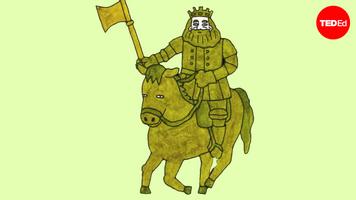
It was Christmas in Camelot and King Arthur was throwing a party. In the midst of the revelry, a towering knight proposed a game. He challenged the warriors present to attack him with his own axe. If they could strike him down, they would win his powerful weapon. However, he would be allowed to return the blow in one year. Dan Kwartler details t...
Dan Kwartler: Why fish are better at breathing than you are
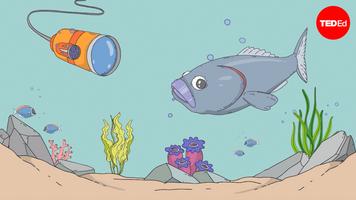
Recent studies found that elite runners can take in twice as much oxygen as non-runners. And it’s likely that this superhuman ability played a role in breaking the two-hour marathon barrier in 2019. But when it comes to breathing efficiently, not even the best runners can compete with the average fish. What makes fish some of the best breathers ...
Dan Kwartler: The real reason polio is so dangerous
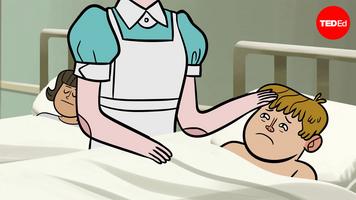
In 1952, polio was everywhere: killing or paralyzing roughly half a million people annually. Yet just 10 years later, paralytic polio cases in the US dropped by 96% and we were on track to get rid of polio for good. But in recent years, the virus started striking back. So, what’s behind these recent spikes? Explore the dangers of poliovirus and ...
TED Climate: What happens to the plastic you throw away?

Plastic is everywhere. We know we should cut down on it where we can, but is plastic ever the answer? In this episode of TED Climate, a whole world of plastic you never knew about. Starting with: which bag is best -- paper, plastic or cotton? The answer might surprise you. Host Dan Kwartler breaks down the pros and cons of each bag and which you...